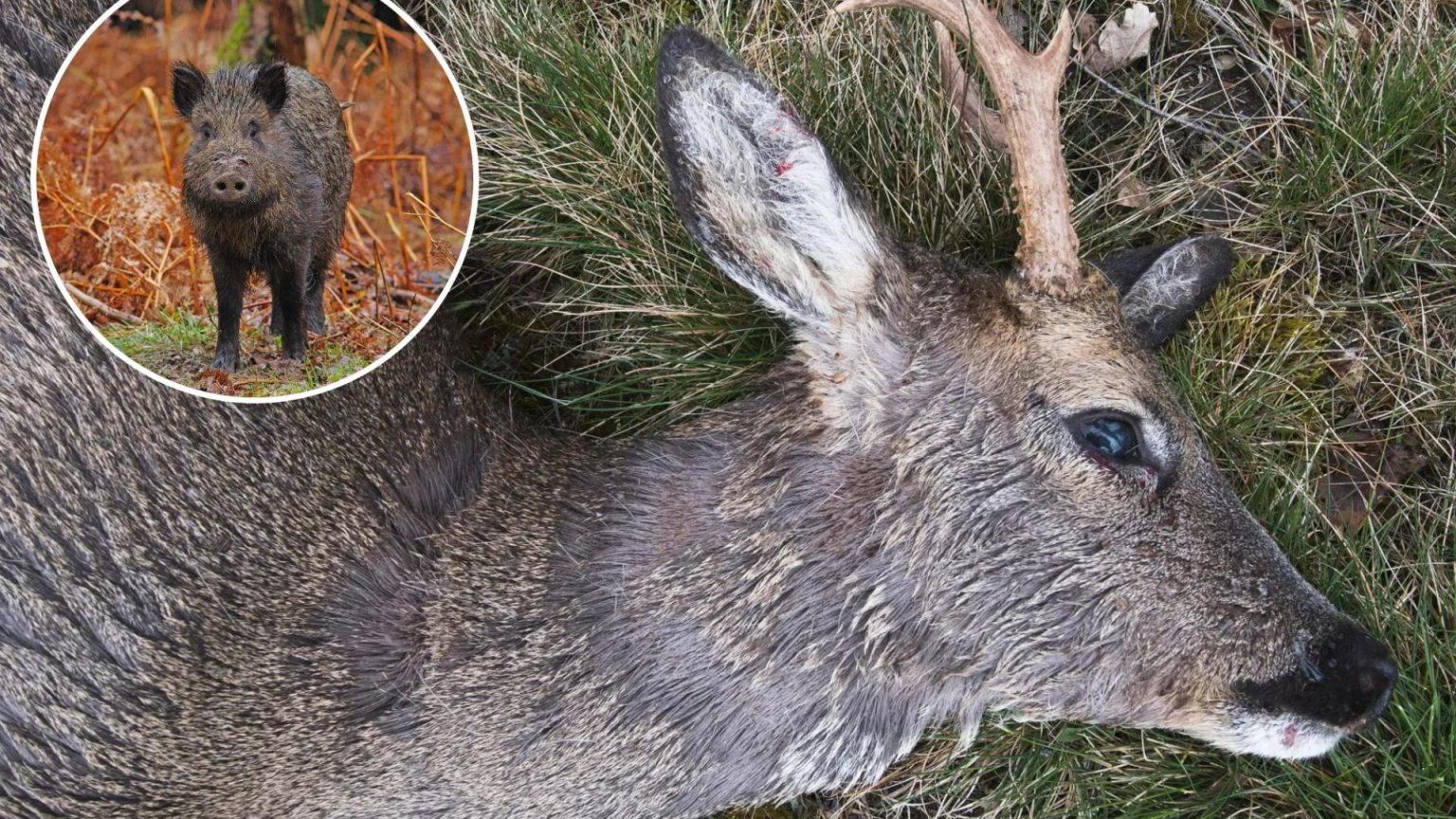Chronic Wasting Disease (CWD), colloquially known as “zombie deer disease,” poses a growing threat to animal populations and potentially to humans. This fatal neurological disorder affects deer, elk, moose, and reindeer, causing debilitating symptoms such as confusion, excessive drooling, and a loss of fear towards humans. The disease is caused by abnormal prion proteins, which are misfolded proteins that accumulate in the brain and nervous system, causing irreversible damage. CWD is invariably fatal, with infected animals progressively deteriorating until death.
The recent discovery of CWD in wild pigs has raised significant concerns about the potential for wider transmission. Experts fear that the disease could spread to domestic pigs, impacting the pork industry and potentially introducing the prions into the human food chain. While there is no confirmed case of CWD transmission to humans, the possibility cannot be ruled out, especially given the similarity of the CWD prions to those causing Creutzfeldt-Jakob disease (CJD) in humans. CJD is a rare and fatal brain disorder also caused by prions, characterized by rapid neurological decline and death. The potential for cross-species transmission of prions underscores the need for vigilant monitoring and preventative measures.
The primary concern surrounding CWD entering the human food supply is the resilience of prions. Unlike bacteria and viruses, prions are resistant to conventional sterilization methods such as heat and radiation. This means that if infected meat enters the food chain, the prions could be consumed by humans, potentially leading to a prion disease. Although the risk of transmission is considered low, the consequences could be severe, prompting researchers to emphasize the importance of preventative measures.
Currently, CWD cases have been reported in North America, South Korea, and parts of Europe, including Norway, Finland, and Sweden. The UK remains largely unaffected due to strict import regulations on animal products from affected areas. However, continuous surveillance remains crucial to prevent the introduction and spread of CWD. Experts recommend avoiding consumption of meat and other products from infected animals, adhering to hunting regulations, and practicing strict biosecurity measures to minimize the risk of transmission.
For individuals in affected areas, precautions such as wearing gloves when handling deer carcasses and avoiding feeding animal protein to ruminants are recommended. Wildlife agencies are also implementing strategies to control the spread of CWD, including monitoring infected populations, restricting animal movement, and educating hunters and the public about the disease. These efforts are crucial to containing the spread of CWD and mitigating the potential risks to both animal and human populations.
The crucial takeaway is the imperative for continued research and vigilance. The expanding host range of CWD, its invariably fatal nature, and the potential for human transmission underscore the seriousness of this emerging threat. While current evidence suggests a low risk to humans, the consequences of inaction could be devastating. Therefore, a proactive approach involving research, surveillance, preventative measures, and public education is essential to protect both animal and human health in the face of this evolving challenge.




